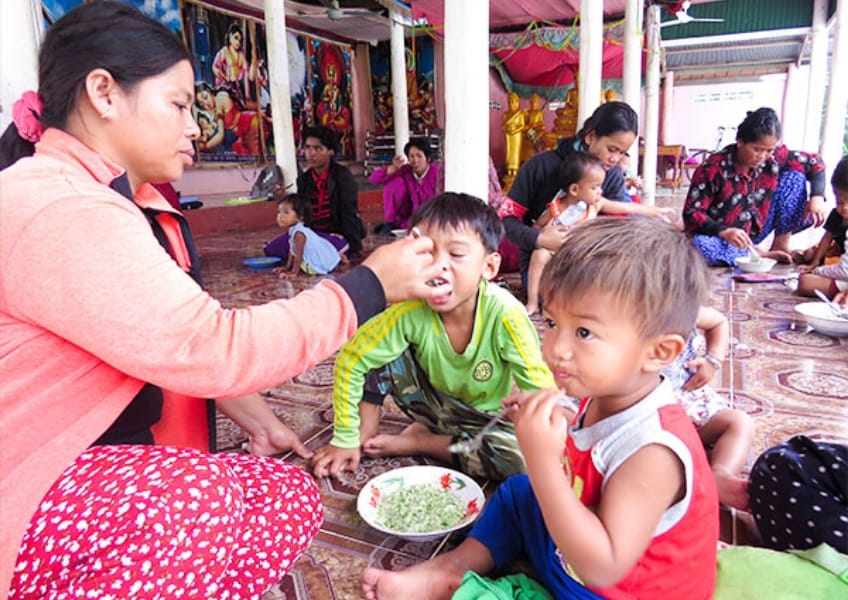Issues the Project Tackles
Nutritional value of meals served at hospitals in Cambodia was not considered at all. Inpatients, therefore, did not take sufficient nutrition, and expected treatment effect was not fully produced.
Background of the Issues
There are few nutrition experts in Cambodia where child malnutrition rate is high among Asian countries. Nutrition is not taught systematically at educational institutions including medical schools. Therefore, even doctors’ understanding on the importance of hospital meals in terms of patient treatment is low.

At National Pediatric Hospital(NPH) we have been assisting through Pediatric Surgery Project, until 2006, simple and insufficient meals have been served twice a day, which were rice and soup at 10:00AM and rice only at 3:00PM. In addition, when meals were served, parents/caretakers of patients had to fetch meals at kitchen, but meals were sufficient only for 30-40% of the total patient number, and many had to go outside to buy meals. These situations were the same at the other national and public hospitals.

Hospital diet is a common practice and regarded as a part of medical treatment in other countries including Japan. It is necessary to make it a common practice in Cambodia, too.
Project Purpose
Improving nutritional status of patients at the National Pediatric Hospital to enhance medical treatment effect
Project Details
Project Site
National Pediatric Hospital, Phnom Penh
Beneficiaries
- Inpatients over 6 months old at the National pediatric Hospital:37,262 children(FY2012), parents/caretakers of patients
- Staff of NPH (doctors, nurses, kitchen staffs): approx. 450 people
Main Activities
- Providing meals to inpatients
- Training for staff of NPH
- Nutritional education for parents and caretakers of patients
- Production of hospital diet recipe book and educational materials on basic nutrition and clinical nutrition
Project Period
FY2006~FY2013
Our Approach
- From the planning stage of this project, Japanese registered dietitians have been stationing in Cambodia, researching local foodstuffs and dietary culture scrupulously.
- They are proceeding to realize locally acceptable hospital diets and its stepwise development.
Learn about other projects

See Other Projects Addressing Nutrition
Please click here
DONATION
Your generous donation now will have impacts
on children and communities in our fields.

















